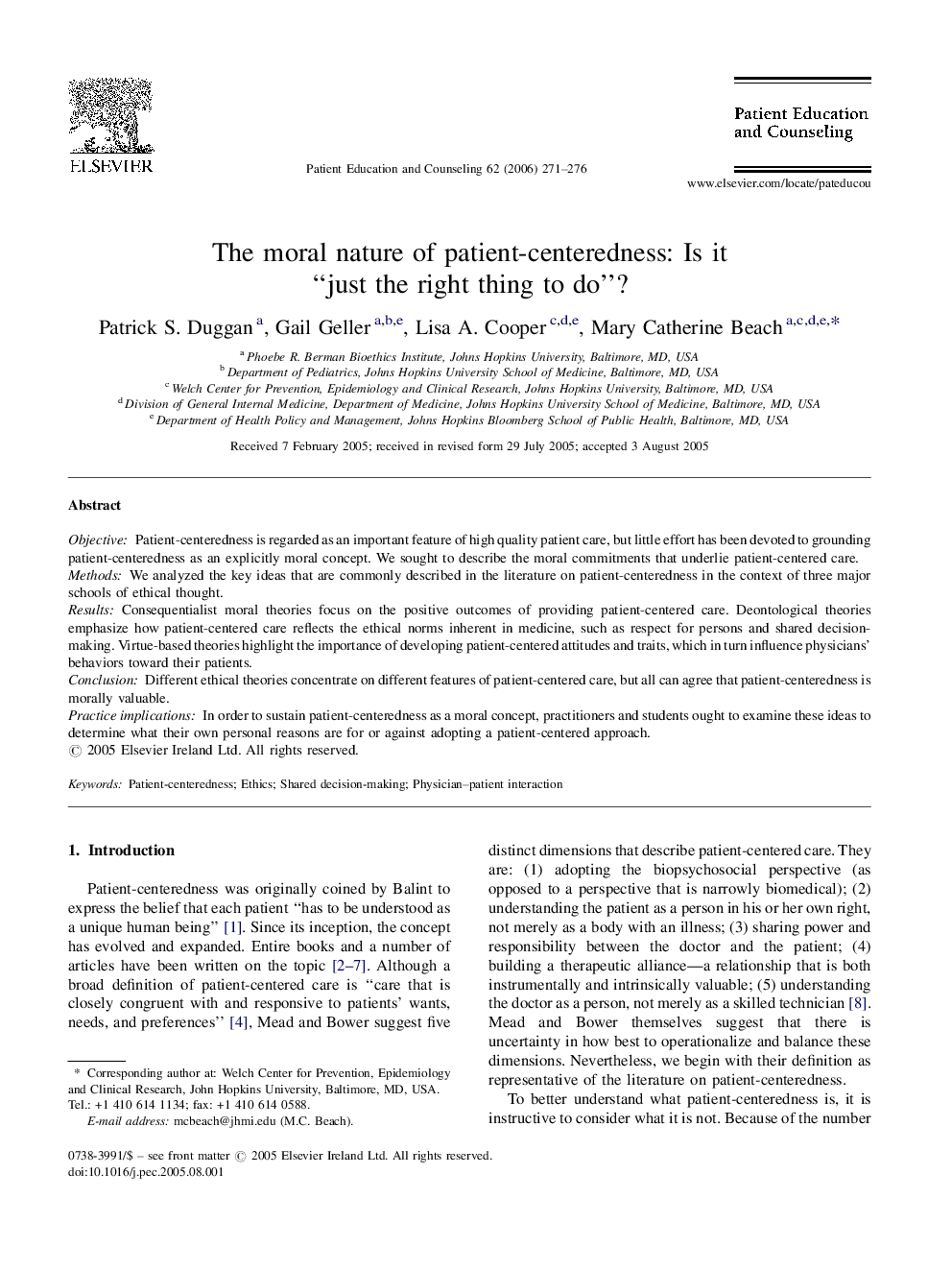| Article ID | Journal | Published Year | Pages | File Type |
|---|---|---|---|---|
| 3814622 | Patient Education and Counseling | 2006 | 6 Pages |
ObjectivePatient-centeredness is regarded as an important feature of high quality patient care, but little effort has been devoted to grounding patient-centeredness as an explicitly moral concept. We sought to describe the moral commitments that underlie patient-centered care.MethodsWe analyzed the key ideas that are commonly described in the literature on patient-centeredness in the context of three major schools of ethical thought.ResultsConsequentialist moral theories focus on the positive outcomes of providing patient-centered care. Deontological theories emphasize how patient-centered care reflects the ethical norms inherent in medicine, such as respect for persons and shared decision-making. Virtue-based theories highlight the importance of developing patient-centered attitudes and traits, which in turn influence physicians’ behaviors toward their patients.ConclusionDifferent ethical theories concentrate on different features of patient-centered care, but all can agree that patient-centeredness is morally valuable.Practice implicationsIn order to sustain patient-centeredness as a moral concept, practitioners and students ought to examine these ideas to determine what their own personal reasons are for or against adopting a patient-centered approach.
